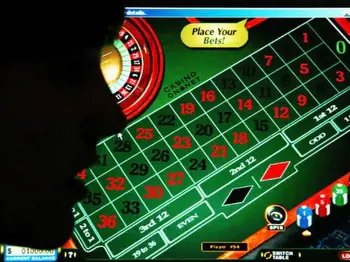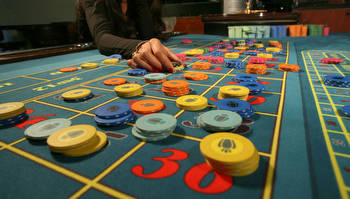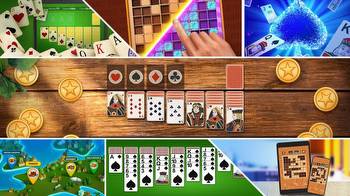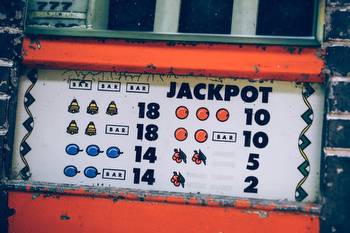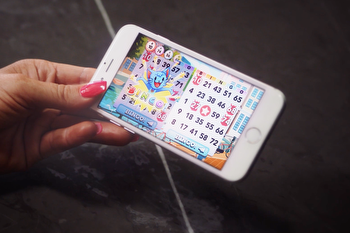Online casinos made Playtika rich

The gaming company Playtika announced the purchase of Reworks for $400 million Tuesday night. Reworks runs a successful app called Redecor that combines interior design with an element of gaming. The app is ranked second in the world in its field in terms of revenues.
This is Playtika’s eight acquisition, and the largest in its history. It’s also the first since the company went public. It now trades on Nasdaq at a market value of $10.8 billion.
The company’s roots – it was founded in Israel and much of its management is still here – lie deep in the world of social casinos. It offers casino-like games like slot machines, but they aren’t defined as gambling because there’s no possibility of making money, only spending it.
So what does a company like that have to do with interior design? And why did it spend $400 million on Redecor when the purchase will produce only $30 million in revenues this year – a drop in the bucket for a company whose expected revenues are $2.6 billion?
The first answer is that Playtika is diversifying its operations and revenue sources. It has been doing so for several years already. Like many companies in its field, it previously expanded into casual gaming – simple games for mobile phones that are easy to play and generate a lot of sales. It has bought several gaming studios overseas that specialize in such games.
According to the company’s financial statements for the second quarter of 2021, its casual gaming business is growing and now accounts for 48.5 percent of its income, up from 42.3 percent in the same quarter last year. It still gets the majority of its income from casino-style games, but that seems well on the way to changing.
Playtika’s strategy is to diversify its revenue sources and accelerate its growth. This strategy apparently stems in part from the problems of casino-style games, including their negative image.
Game creators argue that this is simply another legitimate form of entertainment on which people choose to spend their time and money. But in practice, such games use sophisticated psychological techniques to get users addicted and get them to spend more money.
An investigative report by NBC last year interviewed people who claimed they had fallen victim to aggressive marketing tactics by casino-style gaming companies (though not necessarily those belonging to Playtika), become addicted and ending up spending tens or even hundreds of thousands of dollars.
This is why there have also been calls for increased regulation of the field, and there’s no doubt companies like Playtika have to take possible regulatory changes in various countries into account. A good example, albeit an extreme one, occurred this week, when China imposed draconian restrictions on gaming time for minors, limiting it to just three hours a week. Even though it’s hard to imagine a similar move in other countries, companies like Playtika have to prepare for this possibility.
Playtika has been sued in the state of Washington in the past, with the plaintiffs claiming that its games violate state laws on gambling and consumer protection. The suit ended in a settlement in which the company paid $38 million.
Therefore, adding an app like Redecor, which provides a game-like experience that involves redecorating the inside of a house and not casino-style games, can be part of a strategy to introduce assets with a different business model and a cleaner image into its portfolio.
A reservoir of future players
But the specific choice to buy a home design game company was also no accident; it was a well thought out move based on data.
Robert Antokol, Playtika’s chairman and CEO, said in its press statement that “Reworks offers us a compelling opportunity to establish a leading presence in a category that clearly commands a lot of interest and will potentially serve as a foundation to enter further areas beyond traditional gaming.”
The Hebrew version of the statement added that the acquisition will provide the company with a large, diverse community of design fans whose demographic profile resembles that of Playtika’s existing user base.
What does that mean? Playtika, like any gaming company, is always trying to bring in new players. But the cost of acquiring users is high, and therefore, it has to focus on the segment of the population with the best chance of liking its games – say, slot machines – and spending money on them.
So Playtika did some research and discovered that there’s a high correlation between people who like slot machine games and people who like home design games. Therefore, it’s worthwhile for it to buy a home design gaming company, expose those users to games of chance and try to keep them.
In a conversation with Haaretz, Nir Miretzky, a gaming consultant who is also the senior publishing managers at CrazyLabs, said this could be another way for Playtika to acquire a reservoir of future gamers that belong to a carefully selected target audience – one with a very high chance of liking the company’s other games. From Playtika’s perspective, the purchase lowers the cost of acquiring new users.
Obviously, some of the Redecor players whom Playtika is hoping to gain already spend money on other games of chance. Therefore, it can utilize its extensive gaming platform to provide benefits that will lure these spendthrift players to switch to it and remain within its ecosystem, which includes board games and other casual games as well as games of chance. For instance, it could allow players to use the points they acquire in games of chance for home design, and vice versa.
Moreover, according to data provided by the company, the field of home design games is growing and has a promising future. Playtika said that revenues from the home design gaming category have risen at an annual rate of 33 percent since 2019. And Antokol told Bloomberg that the company will also be able to expand the basic principle of such games into games for designing cars, restaurants and clothes.















